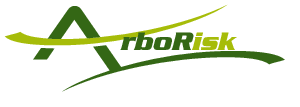Working with Insurance Adjusters
Working with Insurance Adjusters
Written by Tom Dunn
You sustain a loss to your property, and report it to the insurance company. Shortly after, you are notified who the adjuster is that will be handling your claim. For most people, the fear of the unknown now sets in. What will it be like working with this person to resolve the claim and get your business back to normal? Will I be treated fairly and receive just compensation or will they find ways to deny coverage or try to pay as little as possible?
I know first-hand of this experience, having worked for a national TPA adjusting firm as well as as a staff adjuster for a self-insured risk pool that insured municipalities and school districts. From my perspective as an adjuster, I always tried to put the person who sustained the loss at ease during the first interaction and assure them they would be treated fairly.
It is probably a normal reaction to have some anxiety, but there is no reason for this relationship to turn out poorly. If you go into the relationship with the mindset that this person can be my advocate instead of adversary and follow some simple steps, you can walk away from the experience feeling like you have been made whole.
This article will focus on property losses, but there are many different types of claims that adjusters handle. The same basic principles for working with an adjuster apply for any type of claim. It probably helps to know what the role of the adjuster is to help know how the process will work. Here is a summary of the process an adjuster may take:
- Determine the cause of loss
- Determine if there is coverage available under the applicable policies
- Determine the extent of property damage
- Determine if the damage should be repaired, replaced and what to do with the damaged property
- Determine the amount of payment
Seems straightforward, but here are some steps to make the process smoother:
- Report the claim to the insurance company promptly. Your agent can help with reporting a claim.
- Know your policy. You don’t have to be an expert or know all of the ins and outs of the policy, but you definitely should become familiar with what is generally covered and your obligations. Pay attention to the “Duties after a Loss and Proof of Loss Requirements”.
- Ask questions of your adjuster. A good adjuster will explain your duties and obligations and bring up any coverage concerns, but don’t be afraid to ask for explanations if you have questions. As with all strong relationships, communication is the key. Be polite and responsive in all interactions, but it is ok to be firm.
- Take steps to mitigate any further damage while the claim is being investigated. This is required in the policy language. See #2
- Collect documentation of your damage. Take a complete inventory of damaged and undamaged property (pre-loss inventory is even better). Take photos and videos of everything that was damaged as soon as possible after the loss and identify what it is showing.
- Insurance companies may recommend a contractor or you may be able to choose your own to complete repair work. Make sure they are present when the adjuster comes to inspect the damaged property and have experience working with insurance adjusters.
- Keep a claims journal documenting your interactions with the insurance company adjuster (dates, times, subject matter). The adjuster is doing the same with you and this can help resolve any discrepancies.
- Remember the appraisal clause in the policy language. Hopefully, if you have followed steps 1-7, this won’t be necessary, but if you don’t feel you are receiving just compensation for your loss, you have the right to invoke the appraisal clause and seek a non-biased opinion of a third party. See #2
Dealing with the aftermath of a claim can be a stressful situation. Being prepared, detailed, proactive and advocating for yourself goes a long way in obtaining a successful resolution. A good insurance agent knows when and how to become involved, without being a hindrance to the claims process. Utilize that relationship, when needed.
For additional help in working with insurance adjusters, contact a member of the ArboRisk Insurance team! ArboRisk also can work one-on-one with you to create an extraordinary business through our Thrive Risk Management New Heights package!
Lastly, check out this article on maximizing compensation from vehicle accidents in October 2021 TCI Magazine.


Recent Comments